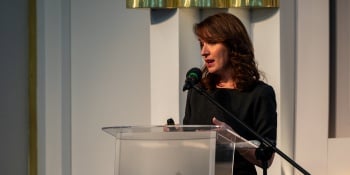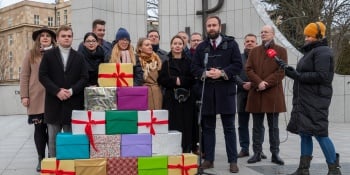Published: 29.11.2023

- The Concordat imposes certain obligations on the state in the sphere of religious instruction in public school, in particular the obligation to organise religious instruction.
- The legislator has thus obliged the public authorities to bear the costs of organising religious instruction, although this is not explicitly included in the legislation.
- In most European Union countries where religious instruction has been introduced into the educational system, it is financed from public funds.
- Teachers of religion have the same legal status as teachers of other subjects, and the remuneration they receive is not a subsidy to a particular religious community, but the income of the individual teacher.
- The Ordo Iuris Institute has prepared an analysis on this subject.
Religion as a school subject is taught in the vast majority of European countries. Also, in all countries where religious instruction has been introduced into the educational system, it is publicly funded. In Greece, religious instruction is enshrined in the Constitution, clergy have the status of state employees and are paid by the state, and religion as a compulsory subject is taught in schools. In Denmark, the curricula for religious education at primary school level are set by the school boards, but religious education in terms of content is denominational. In Germany, religious education is financed by the state and religion itself as a standard subject is standardised in the Constitution. In the case of Malta, religious education is provided in all public schools. Teachers' salaries are paid by the state. Also in Portugal, the Constitution guarantees the right to religious education for every denomination and teachers are appointed and employed by the state.
In the Polish legal system, religion lessons are an optional subject that is organised at the request of parents or adult pupils. Such an arrangement is an expression of respect for the constitutional right of parents to raise their children according to their own beliefs.
Although there are no norms in the Constitution, in provisions of statutory rank or in the Concordat directly imposing on the state the financing of religious instruction, this obligation can be "decoded" from Article 25(3) of the Constitution (principle of cooperation of churches and other religious associations with the state for the good of man and the common good) and Article 53 (as a manifestation of the realisation of freedom of conscience and religion) as well as Article 48(1) (right of parents to bring up their child in accordance with their convictions). The link between religious education and the constitutional right to education (Article 70), which is free of charge at the level of public education and which cannot be discriminated against simply because of methodological differences from other subjects, also plays an important role in this respect. Significantly, too, religious education is the only subject with constitutional teaching guarantees.
Consequently, since the legislator has imposed an obligation on the state to organise religious instruction, it has thereby obliged the public authorities to bear the costs of this organisation. Such an understanding of the separation of Church and State prevails in most European democratic states where religious instruction in public schools takes place, sometimes even in an obligatory form.
- The mutual relationship between the state and confessional entities is characterised not only by a guarantee of independence in action, but also by an injunction to undertake joint initiatives when constitutionally mandated objectives are to be realised. These include state financing of ecclesiastical activities as defined e.g. in Article 22(1) of the Concordat, i.e. socially useful activities of religious associations, such as education. This is because not only the faithful, but also society as a whole benefits in this respect, in particular through religious education, which is the only one to have been explicitly included in the constitution as an area of cooperation between both entities," points out Dr Kinga Szymańska, analyst at Ordo Iuris.

• “In the United States, here in Poland, and around the world, we are experiencing a cultural revolution. We are literally at war,” said Tina Descovich, co-founder of Moms for Liberty, during a meeting in Warsaw, encouraging action to protect children from gender ideology.

26.02.2025
• The Polish Supreme Court has refused to hear a cassation appeal filed by IKEA in the case of Janusz Komenda, an employee fired for criticizing the demands of the LGBT movement.

• The collection of signatures for the Polish citizens’ legislative initiative “Stop the Pornography Drug” has come to an end.

The day of the decisive battle for the innocence of Polish children has arrived. Donald Tusk’s government has unveiled a radical proposal for compulsory sex education in the schools. On October 31, the Polish Ministry of Education published the core curriculum for a new school subject, “Health Education,” which has led to a great deal of controversy.